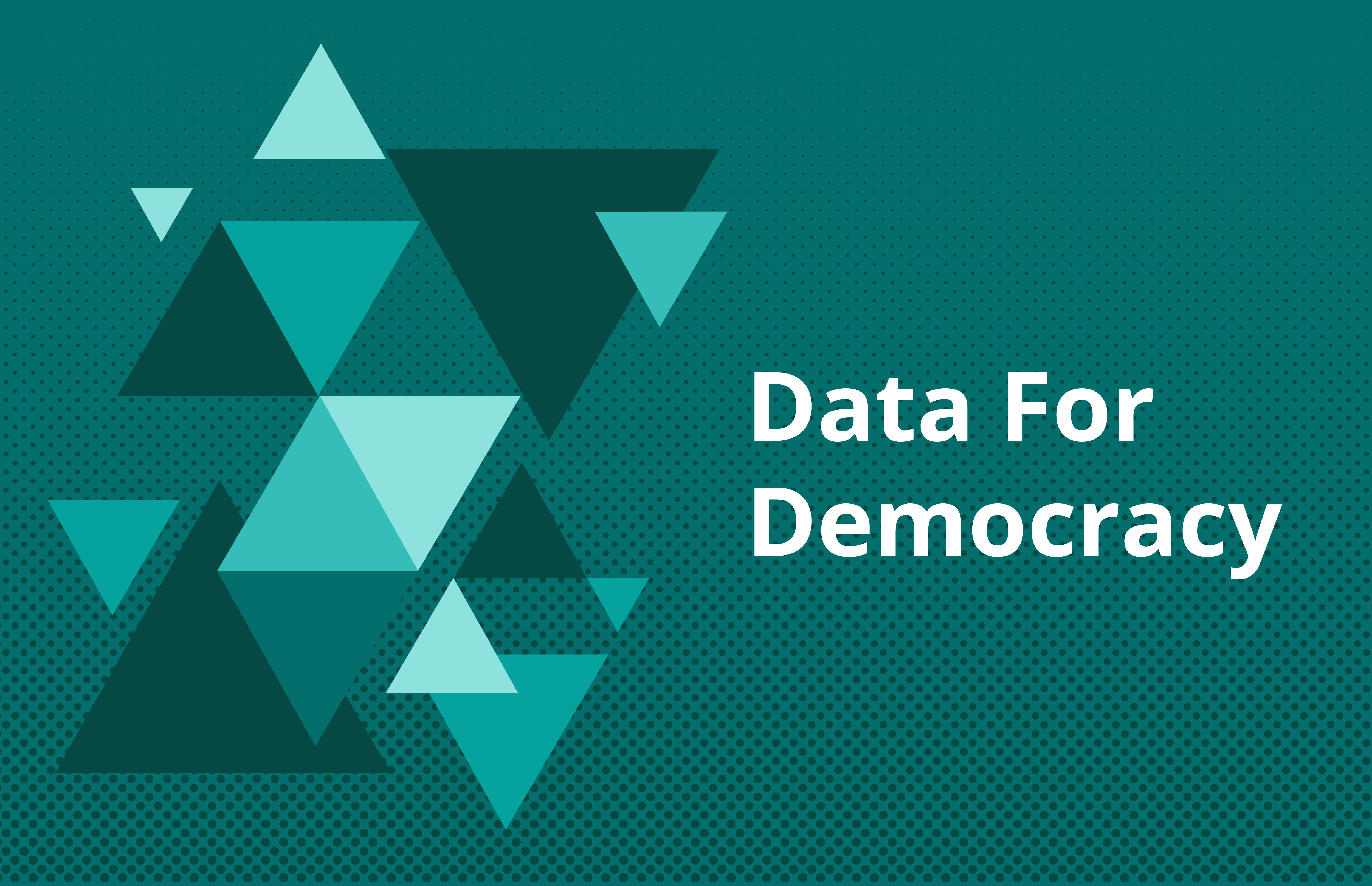Who are Right Messengers to Counter Election Disinformation? May 1, 2022
Citizen is exploring an important and understudied facet of election disinformation: who are the right messengers to build trust in our election system?
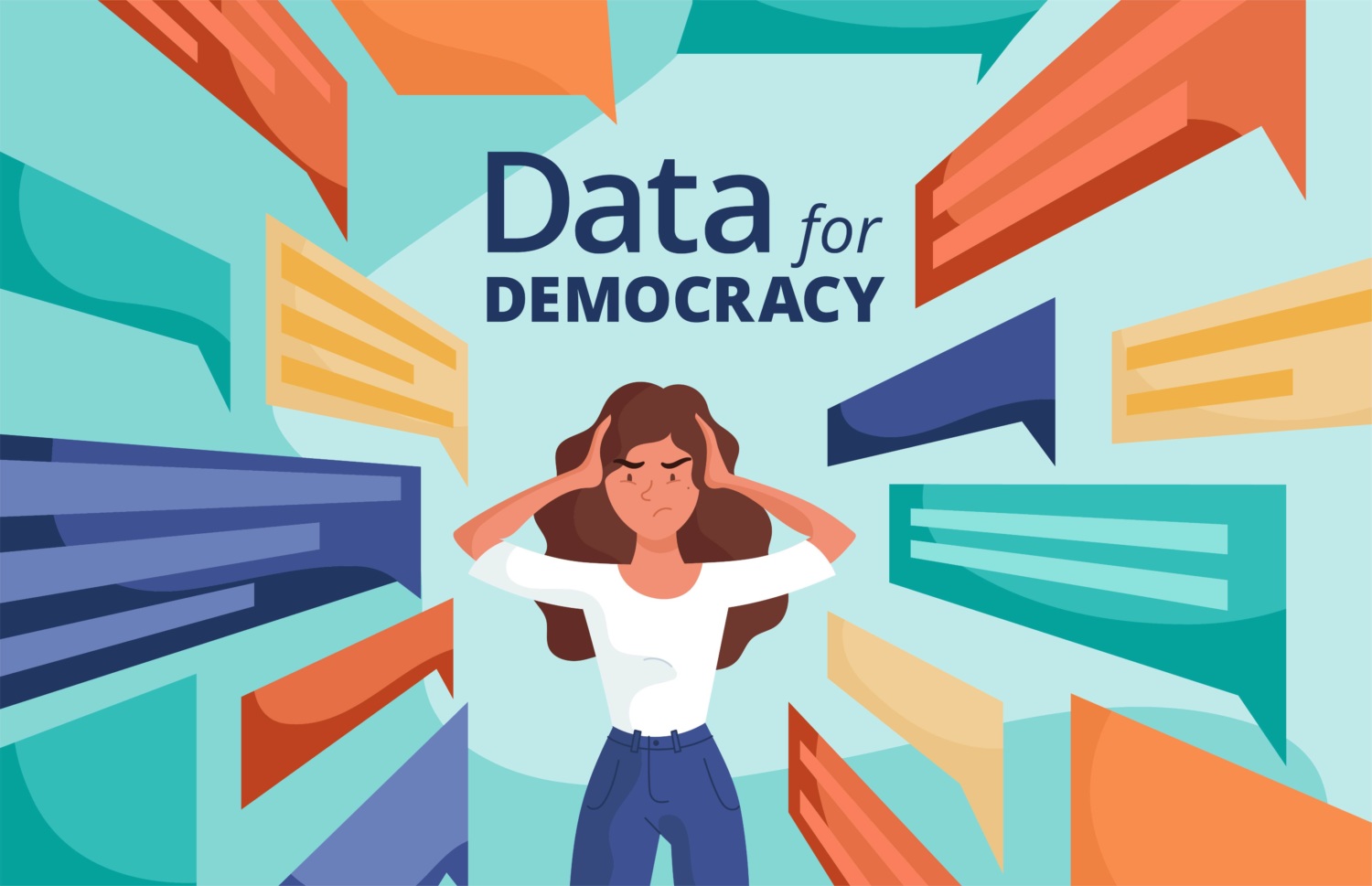
1. WHO DO YOU TRUST?
Trust in the messenger plays a critical role in how one perceives a message. One finding from Citizen’s recent research on the conflict in Ukraine emphasizes this point.
When presented with messaging by U.S. political figures, a majority of Republicans and Democrats supported anonymized statements by both Sens. Bernie Sanders and Mitt Romney. In fact, on a scale of 1–10, 46% of Republicans rated Bernie Sanders’ anti-Russia statement a 10/10. However, we can assume they would have been far less approving had they known Sanders was the messenger.
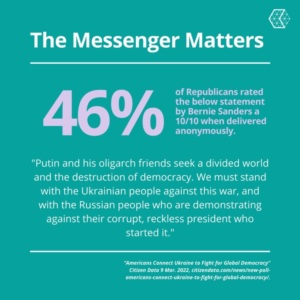
2. PEERS + AUTHORITY
Peerness: When someone like us delivers a message, we are more likely to be open to it because we subconsciously believe that person has similar preferences to our own. Peerness may be based on similarity in age, gender, race, where one grew up and went to school, and other identities that matter to them personally.
+
Perceived Authority: Humans are a hierarchical species, and we tend to trust those in authority positions. Our parents or guardians are the first examples at a young age.
=
Authoritative peers are best positioned of all to influence a target audience. In fact, we know that local doctors and religious leaders became best-positioned to reach vaccine-resistant communities in the effort to increase Covid immunization rates when other national public health figures became untrusted.
Share this report
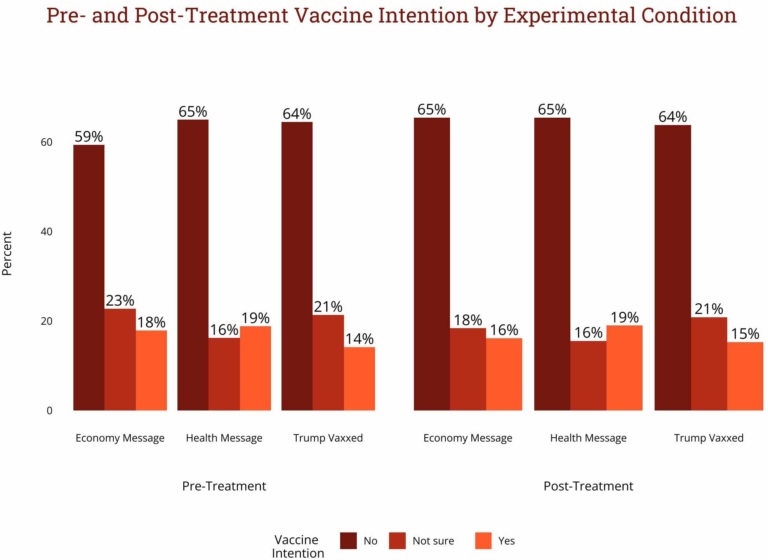
Messages promoting COVID vaccines alone failed to change behavior; however, local experts such as physicians on the ground effectively normalized the vaccine among the hesitant.
3. IDEAL MESSENGERS
In addition to “peerness” and “authoritativeness,” ideal messengers are usually perceived as both likable and powerful, but without being threatening. What are types of messengers perceived as likable, powerful, and unthreatening?
- Athletes: Both cigarette brands AND anti-smoking campaigns used them effectively.
- Service members: Military officers have cache speaking on societal issues.
- Local leaders: Local doctors and health leaders during COVID, local election officials during elections, local clergy matter during times of community distress.
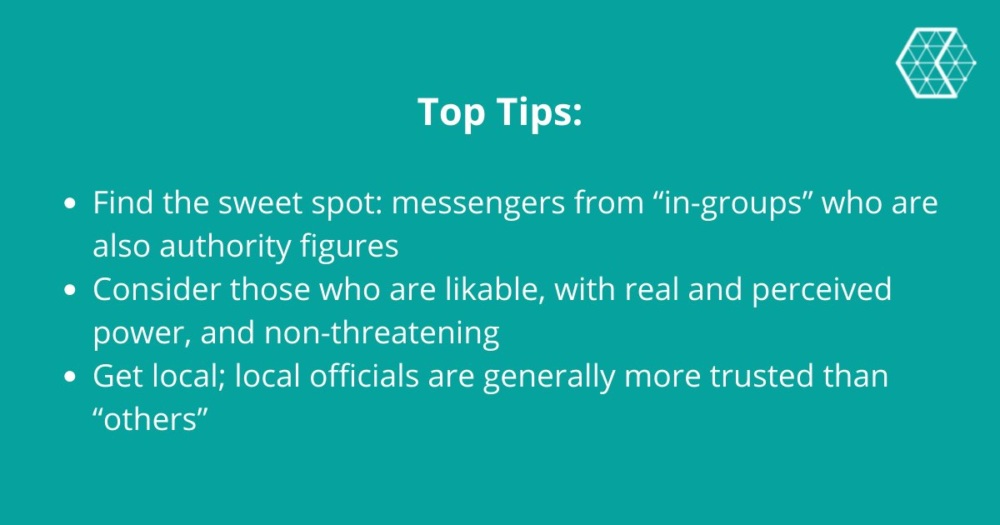
DATA-IN-ACTION
To mitigate election disinformation, we study those who are already captured by it but open to persuasion. Then, we find trusted, authoritative peers they will listen to.
Citizen will soon release survey insights from a broad-based study that understands which identity-based and role-based attributes various Americans connect to likability, power, and threat. We’ll use these findings to inform randomized controlled trials that will evaluate the impact of election disinformation interventions when delivered by different types of messengers.
As our growing partner network “sells” more Americans on democracy and civic engagement, it’s critical they use not only effective messaging but also messengers.
If you have any questions about this work, don’t hesitate to reach out.
Challenging Polarization Through Deliberation
Reversing toxic polarization is key to preserving democracy.
